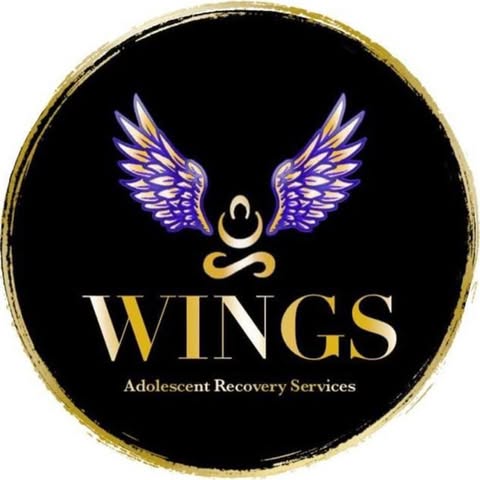Litchfield, Minnesota, United States
Wings Adolescent Treatment Services
Unclaimed
Unclaimed
This provider hasn’t verified their profile’s information. Are you the owner of this center? Claim your listing to better manage your presence on Recovery.com.
Provider's Policy
Our admissions team will work with you to explore the right payment options based on your needs, ensuring you get the best possible treatment.

Contact Wings Adolescent Treatment Services
Connect with Wings Adolescent Treatment Services by calling them directly.
Are you the owner of this center?
Claim this center
About Wings Adolescent Treatment Services
WINGS Adolescent Treatment Services, located near Minneapolis, helps teens ages 13 to 18 who struggle with both mental health issues and addiction. The center provides structured, co-occurring disorder treatment in a safe, supportive environment. WINGS builds strong foundations through assessment, personalized care, and long-term recovery planning for both teens and their families.
Therapies That Build Life Skills
WINGS uses proven therapies like cognitive behavioral therapy (CBT), dialectical behavior therapy (DBT), group and individual counseling, and 12-step support to help teens grow. Licensed counselors work closely with each client to teach decision-making, self-esteem, and coping skills. Family therapy and education are key parts of the process, helping everyone learn, heal, and support lasting change.
A Supportive, Skill-Building Environment
Teens at WINGS live in a structured, homelike setting with a daily schedule that builds routine and responsibility. Clients attend on-site school, take part in recreation, do chores, and join skill-building activities. This environment helps them learn how to build healthy relationships, manage daily life, and live without using drugs or alcohol.
Read More
Insurance Accepted
Provider's Policy:Our admissions team will work with you to explore the right payment options based on your needs, ensuring you get the best possible treatment.

BlueCross BlueShield
<p>A leading healthcare provider serving over 100 million Americans as one of the largest insurance companies in the country.</p>
See rehabs that accept this provider.
Center Overview
Adolescents
Teens receive the treatment they need for mental health disorders and addiction, with the added support of educational and vocational services.
Children
Treatment for children incorporates the psychiatric care they need and education, often led by on-site teachers to keep children on track with school.
Young Adults
Emerging adults ages 18-25 receive treatment catered to the unique challenges of early adulthood, like college, risky behaviors, and vocational struggles.
Treatment Focus
You can admit to this center with a primary substance use disorder or a primary mental health condition. You'll receive support each step of the way and individualized care catered to your unique situation and diagnosis.

Care Options






Treatment
Specializations
Adolescents
Teens receive the treatment they need for mental health disorders and addiction, with the added support of educational and vocational services.
Alcohol
Using alcohol as a coping mechanism, or drinking excessively throughout the week, signals an alcohol use disorder.
Anxiety
Anxiety is a common mental health condition that can include excessive worry, panic attacks, physical tension, and increased blood pressure.
Depression
Symptoms of depression may include fatigue, a sense of numbness, and loss of interest in activities. This condition can range from mild to severe.
Drug Addiction
Drug addiction is the excessive and repetitive use of substances, despite harmful consequences to a person's life, health, and relationships.
Approaches
Evidence-Based
A combination of scientifically rooted therapies and treatments make up evidence-based care, defined by their measured and proven results.
Individual Treatment
Individual care meets the needs of each patient, using personalized treatment to provide them the most relevant care and greatest chance of success.
Twelve Step
Incorporating spirituality, community, and responsibility, 12-Step philosophies prioritize the guidance of a Higher Power and a continuation of 12-Step practices.
Therapies
1-on-1 Counseling
Patient and therapist meet 1-on-1 to work through difficult emotions and behavioral challenges in a personal, private setting.
Family Therapy
Family therapy addresses group dynamics within a family system, with a focus on improving communication and interrupting unhealthy relationship patterns.
Life Skills
Teaching life skills like cooking, cleaning, clear communication, and even basic math provides a strong foundation for continued recovery.
Relapse Prevention Counseling
Relapse prevention counselors teach patients to recognize the signs of relapse and reduce their risk.
Twelve Step Facilitation
12-Step groups offer a framework for addiction recovery. Members commit to a higher power, recognize their issues, and support each other in the healing process.
Conditions We Treat
Anger
Although anger itself isn't a disorder, it can get out of hand. If this feeling interferes with your relationships and daily functioning, treatment can help.
Anxiety
Anxiety is a common mental health condition that can include excessive worry, panic attacks, physical tension, and increased blood pressure.
Depression
Symptoms of depression may include fatigue, a sense of numbness, and loss of interest in activities. This condition can range from mild to severe.
Trauma
Some traumatic events are so disturbing that they cause long-term mental health problems. Those ongoing issues can also be referred to as "trauma."
Substances We Treat
Alcohol
Using alcohol as a coping mechanism, or drinking excessively throughout the week, signals an alcohol use disorder.
Co-Occurring Disorders
A person with multiple mental health diagnoses, such as addiction and depression, has co-occurring disorders also called dual diagnosis.
Drug Addiction
Drug addiction is the excessive and repetitive use of substances, despite harmful consequences to a person's life, health, and relationships.
Experience
Personal Amenities
Smoking and Vaping Policy
We love hearing about your treatment experience
Help individuals and families seeking treatment by sharing your first-hand experience with this treatment provider. Review Guidelines.







